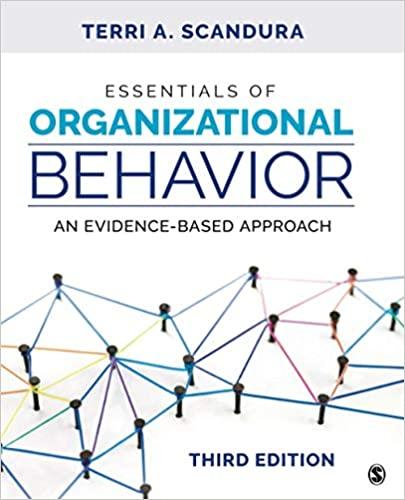Organizations face business crises, which are disruptions that lead to negative responses that may affect the organizations
Question:
Organizations face business crises, which are disruptions that lead to negative responses that may affect the organization’s reputation and even viability. Crisis communication is an applied discipline that recommends solutions to real-world problems based on research. It emerged as a practice in the late 1980s. Today, social media has increased the scrutiny on what may be perceived as wrongdoings by organizations, increasing the need for crisis communications. One response is denial; however, research has indicated that more effective responses are taking responsibility, and rebuilding integrity and perceptions of competence. Management consultant Kim Harrison suggests the following guidelines for communicating during a crisis to manage perceptions of the situation: • Speed. First impressions matter. The first message people hear sets the stage for later communications. If people don’t hear a message, then it will be processed as silence. Employees, shareholders, and the public may lose confidence. Communication Professor Debra Davenport agrees: “You may not have all of the details for days, or even weeks, but a prompt announcement to the media and your key publics will
(a) minimize speculation and rumor and
(b) let the audience know you are in control.” • Facts. Make sure you check the facts. Repeat and ensure credibility. Prepare the message carefully. Evaluate potential crisis scenarios, and plan ahead so that you have the important facts at hand. It’s not okay to say, “No comment.” Communication researcher Yang Cheng reports that information is the factor most desired by people in crisis and risk situations. • Trust. Establish trust with your audiences. There are four basic elements to establishing trust through crisis communication: empathy, competence, honesty, and commitment. It is important to be transparent and never engage in cover-up or deceit, according to Davenport.....
Discussion Questions
1. With respect to the guidelines for crisis management (speed, facts, and trust), which one do you think is the most important and why? Rank order them in terms of their effectiveness during an organizational crisis.
2. Explain why social media has increased the need for crisis communication. Provide an example of a rumor that spread on social media about an organization that later turned out to be false, and assess the organization’s response.
3. Evaluate the responses of two different government leaders during the COVID-19 crisis. How well did they respond in terms of speed, facts, and trust?
Step by Step Answer:

Essentials Of Organizational Behavior An Evidence-Based Approach
ISBN: 9781544396781
3rd Edition
Authors: Terri A. Scandura





